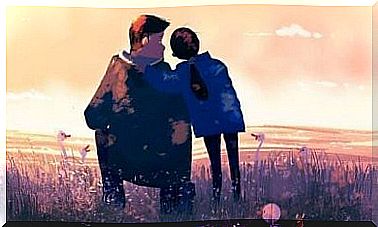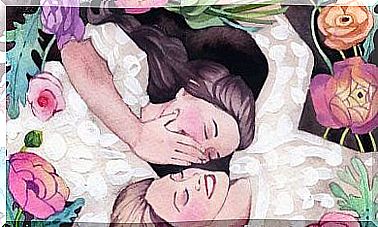7 Of The Best Quotes From Psychologist Carl Rogers: Empathy, Tolerance And More
Carl Rogers often talked about the control we have over fate, about experience and personal growth, as well as the value of people and relationships.
Since the 1950s, Carl Rogers has been a prominent figure in humanistic psychology. His best-known publications are Client-Centered Therapy (1951), and Becoming a Person (1961).
Together with Abraham Maslow, Rogers was a psychologist who gave great importance to personal development. Many of Roger’s quotes focus on helping people reflect on their own lives. That’s why we’ve gathered some of his best quotes here for you.
Empathy, one of Carl Rogers’ favorite topics
From Carl Rogers’ perspective , empathy is a fundamental concept. In fact, he considered it one of the basic attitudes that a person must develop in order to achieve self-realization.
Now, being empathetic, according to Carl Rogers, is not putting yourself in the other person’s shoes. Empathy requires serious work, reflection and knowledge of how the other person observes and experiences the world around them.
Empathy is not only what you would do in the other person’s situation, but also how you would react in that situation based on their worldview.
Direct experience as a priority
This quote is controversial, but it also makes you think. Rogers emphasizes that our most important guide is not others, not even religion. The most important guide is inside yourself.
Rogers says that the highest authority is one’s own experience. While he believes that other people’s judgments should be heard, he says that they should not be considered a mentor.
Thus, every human being should be treated as an individual worthy of respect, with the right to evaluate their experience in their own way, and with the power of independent choice.

Approval as an impulse for change
For Rogers, acceptance is the basis for change. If there is no acceptance, there is no change because the mind has “gone away.” Therefore, looking at who we really are and knowing ourselves is the key to growing as a person.
The value of being yourself
Carl Rogers believes people are as beautiful as sunsets – if they are allowed to be sunsets. That is, he appreciates sincerity and authenticity above all ; the natural state of each and every one of us.
Rogers learned in his relationships that in the long run it does not help to act like someone he is not. We can not be happy if we show a false version of ourselves, because we effectively reject ourselves.
Admission of our feelings
When we experience a feeling, it is appropriate to accept it, not to avoid or suppress it. The feeling must be shielded and listened to.
What is the message it entails? Only then will we be able to know ourselves and others. Only then do we begin to get to know each other.

Tolerate uncertainty
Fear and insecurity are our companions in life. Not everything is controllable or predictable, or even safe. Confusion and emotional ups and downs will happen, and we must be prepared.
Having the idea that we can control everything comes from being afraid of not knowing how to react. It is the result of uncertainty. And even though it is impossible to be prepared for everything, we sometimes act as if we can and are imprisoned in mental rigidity.
If we want to live in flow, we must learn to let go. This will open the way to flexibility and joy.
Learn to learn
Carl Rogers understood that he, as a graduate, was trying to grow and change. Self-knowledge and self-realization go hand in hand along the path of life. To be educated, one must be informed, reflect and ask questions.

As we see, the legacy Carl Rogers left us is a great source of knowledge and can really help people. In his first years as a professional, he always asked himself the same question: how can I treat, cure or change this person?
But his experience eventually changed this question to: how can I provide a relationship that this person can use for their own personal growth?
His many contributions to psychotherapy and his innovative vision of therapeutic practice are still alive today. He developed many theories, but reflecting on these quotes will no doubt help us to understand his way of thinking. They make us think.








